Forum Home > GMAT > Quantitative > Problem Solving (PS)
Events & Promotions
| Last visit was: 27 Jul 2024, 01:05 |
It is currently 27 Jul 2024, 01:05 |

Customized
for You
Track
Your Progress
Practice
Pays
09:55 AM PDT
-11:00 AM PDT
08:00 PM PDT
-09:00 PM PDT
05:55 AM PDT
-12:30 PM PDT
07:00 PM IST
-08:00 PM IST
09:00 PM IST
-10:00 PM IST




| FROM Goizueta Emory Admissions Blog: A little team building with the MBA admissions team… |
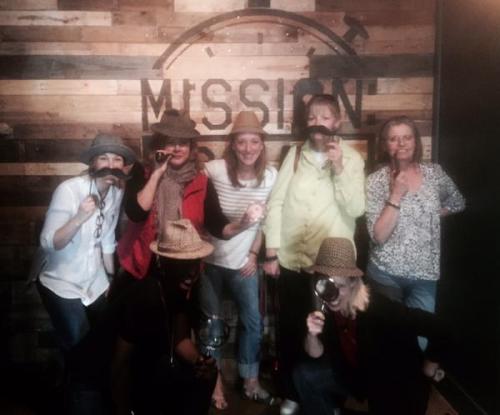 A little team building with the MBA admissions team… |
| FROM Goizueta Emory Admissions Blog: Top 5: Ways to stand out in an MBA Admissions Interview |
| One of our favorite parts of being a member of the admissions team is the application interview.... |
| FROM Goizueta Emory Admissions Blog: Why I chose to pursue the MS in Business Analytics Program at Goizueta |
 Imagine this, a few days later it is going to be Christmas. You are working in this ridesharing company and your boss is asking you to figure out how many ride requests there will be on Christmas Eve. Your common sense is telling you there will be more people who need a ride home from the airport while there will be much fewer commuters sending ride requests during rush hours (not sure if Santa is going to use your services or not, though). Then you figure if you should pull up the historical data from the fancy database your company has already spent millions of dollars on and try to find out the certain pattern during last year’s Christmas. This is the predictive analysis project I ran into when I was an intern at this ridesharing company in China. What would usually happen next was I found several predictors — temperature, humidity, hour of the day, if it’s weekday or weekend, if it is holiday or not, discount, etc., and I built a regression model to explain how and how much these factors would change the number of requests we received every day. With the predicted number of requests on hand, now we can adjust the coupon strategy to balance the demand and supply accordingly. Problems like this are everywhere in today’s business world — how Facebook recommends to you people you may know, how LinkedIn finds someone who has the similar career path, how FedEx knows when your package will be delivered, how Uber designs the best route for carpool. Business analytics is the key to all these unconventional business questions. Business data scientists use data programming as a tool in addition to their business understanding to better explain the past and predict the future. From the seemingly chaotic data, we disclose hidden business growth opportunities. The human brain’s bandwidth is limited — we just cannot process too much information at the same time. Human judgment is always biased as well. As technology reshapes every aspect of our life and causes information overload, let’s just ask computers for help. Coming from a business background, I’m glad I found this MSBA program at Emory University that opens up a world of opportunity in the analytics field. This 10-month STEM designated program perfects my technical skills for a future business data scientist. Meanwhile, the business nature of this program ensures me I can seamlessly apply these skills in real-world practices. Join us on the journey of translating data into insights. |
| FROM Goizueta Emory Admissions Blog: Natural Products Expo West: Food as a driver of social, environmental causes |
 Over 3,600 companies exhibited the newest and greatest in natural and organic foods and products at one of the world’s largest trade shows. “There’s no business to be done on a dead planet.” I thought about this quote a lot in the last couple weeks. In early March, I traveled to Anaheim and attended the 39th annual Natural Products Expo West, the world’s largest trade show focused on natural, organic and healthy food and products. Though Expo West was a whirlwind of people (over 86,000 people from 136 countries attended!) and programming over five jam-packed days, one clear theme emerged from all my conversations: that business could — and should — be used as a force to advance social and environmental causes. Consider the quote above. I heard it from Yvon Chouinard, the founder of Patagonia, who delivered the keynote address on the first day of Expo West. During his talk, he urged attendees to consider the role that business could play in combating climate change. “All of us have resources and we need to use them. What resource do I have? I have this company. I thought to myself, ‘I’m not doing enough.’” I was fortunate enough to attend Expo West and meet leaders like Chouinard through the support of the Social Enterprise @ Goizueta (SE@G) and a program called MBArk. Now in its eighth year, MBArk (pronounced “embark”) brings together cohorts of progressive business school students and sends them to large trade shows to explore careers in sustainability, entrepreneurship and food. A jam-packed schedule of educational and professional programming This year, I met up with 53 other students from top MBA programs around the U.S. for a full suite of programming centered at Expo West. The MBArk program included networking opportunities, including dinner with MBArk alum, happy hour with General Mills executives and breakfast with 40-plus CEOs. With other MBArk participants, I attended numerous booth visits, which were designed-for-us opportunities that allowed deep-dives into specific companies such as Zupa Noma, KeHe, Honest Tea, Beyond Meat, Daiya, Clif Bar and Zevia. Finally, we also attended themed panels around e-commerce (hosted by Thrive Market) and sustainability (Dr. Bronner’s and General Mills). In between these MBArk sessions, the other participants and I would take advantage of the programming Expo West had organized directly. A few highlights included daily morning yoga, Climate Day (a full day of panels focused on climate change and the approaches companies are taking to reduce packaging, use renewable energy and support regenerative agriculture), and of course, exploring the booths and sampling new products from the 3,600 companies present. 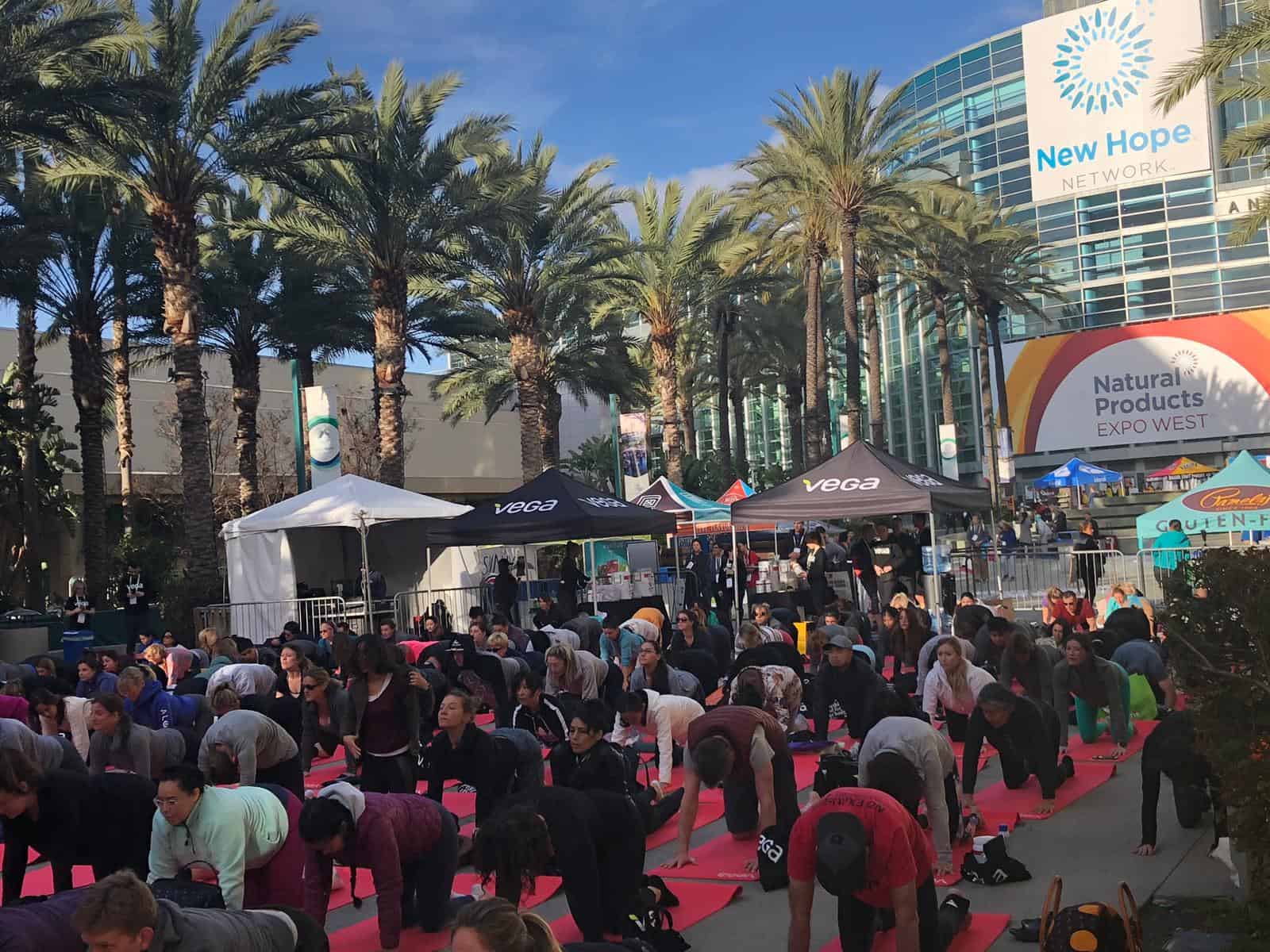 Each day of Natural Products Expo started with optional morning yoga outside the Anaheim Convention Center – a great way to warm up the body before full days of sampling foods, networking, and hustling from one hotel to another! The schedule was packed, but I didn’t feel exhausted during the conference, despite being on my feet all day and talking to what felt like hundreds of people a day. This is because at this point in my business school career, I found the conversations I had at Expo West to be very refreshing and inspiring. Stories shared by industry executives, as well as my MBArk fellows, brought my MBA classroom learnings into real-life. Walter Robb, former CEO of Whole Foods, reminded me of the importance of knowing your customer, knowing them well, and not trying to serve a nonexistent “average” customer. “People are breaking into food tribes: we have paleo, keto, Whole30, etc.,” he said. “Retailers are thinking about how we can communicate with and connect with each of those segments.” Sheryl O’Loughlin, CEO of REBBL, maker of super herb beverages, echoed this key lesson when she shared this piece of advice, “Focus on your niche audience, don’t focus on the mass at first.” As the former CEO of Clif Bar, she introduced LUNA Bars as the first nutrition bar aimed at women. “I noticed that women were not being served by this industry. Grow the pie: find out who is not going or participating in something, and invite them in.” More broadly, Expo West showcased real-life examples of businesses that yielded both financial profits and a wider societal impact. For instance, co-founder and co-CEO Nick Green spoke to the MBArk program about his vision for Thrive Market, positioning it as an online platform meant to expand organic and healthy food access to more Americans. CEO of Zevia, Paddy Spence, explained how his products provided people with a healthier soda alternative that was naturally sweetened and contained zero calories. 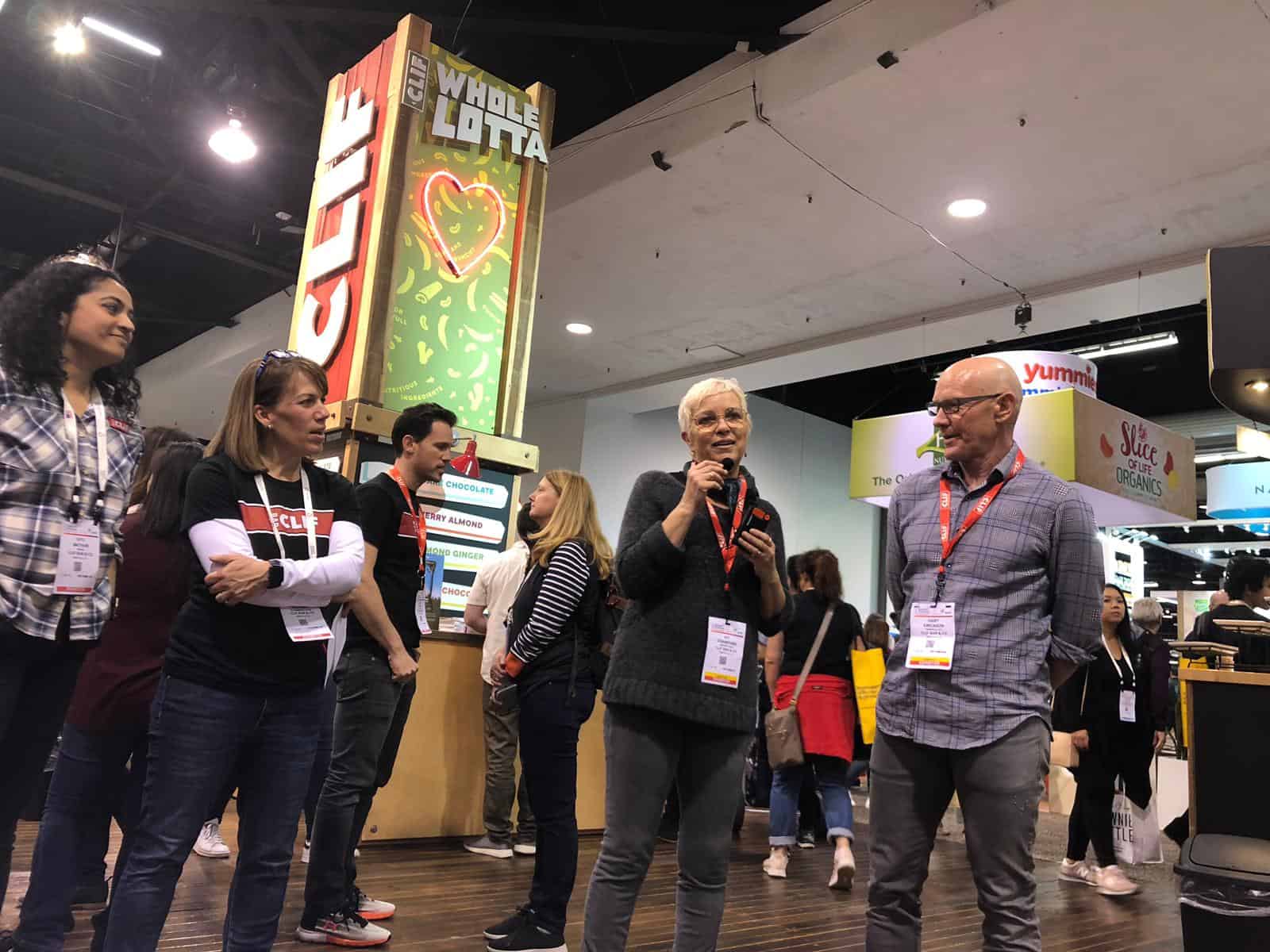 Gary Erickson and Kit Crawford, the husband and wife co-owners of Clif Bar, speak with MBA students about building capacity in sustainable supply chains by funding organic research and sharing best practices with other CPG companies. Reflections on 5 days in Anaheim After Expo West, I’m left with a sense that business leaders can and should take a larger, systemic view around the impact they have on social and environmental issues. I’m also left with questions around the limits of their role. As someone with academic and career experience in public policy, I’m aware of the critiques around conscious capitalism and its assumptions of privilege: you still need a fair amount of education, disposable income, and leisure time to understand, research and buy organic products. 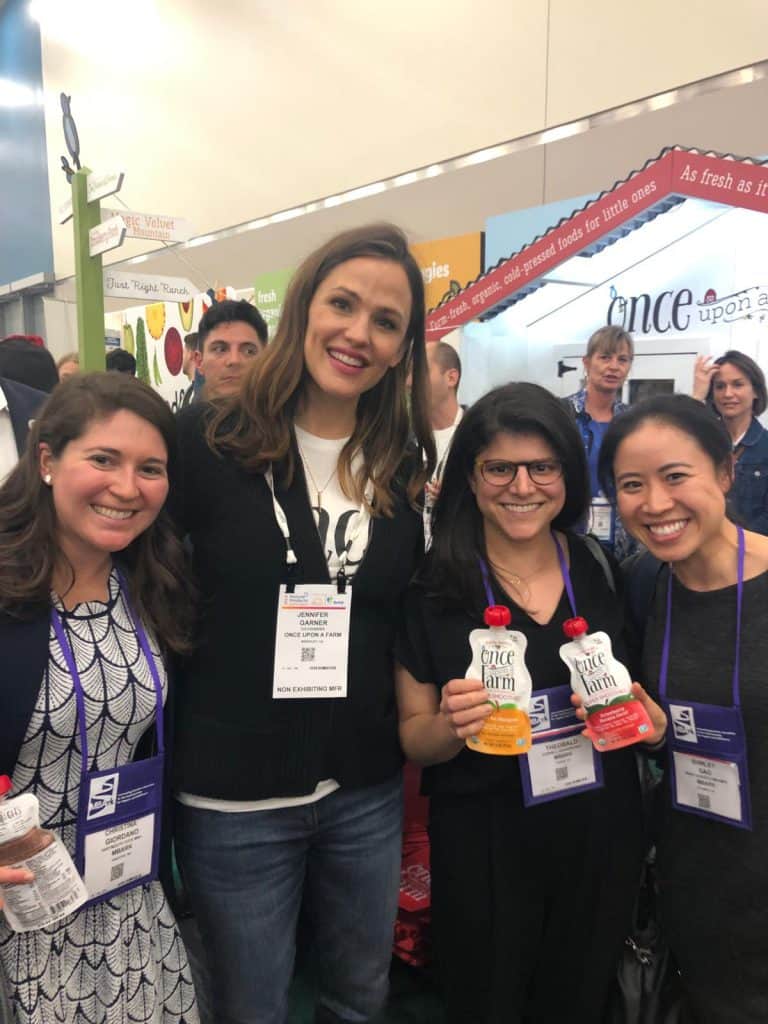 Jennifer Garner, co-founder of cold-pressed, organic baby food brand Once Upon a Farm, stopped by the expo floor to greet fans. Most thought-provoking for me, though, was the limited conversations at Expo West around the role of policy in creating lasting, systemic change. A few companies referenced how they used their platforms to encourage their consumers to support progressive political causes and/or pressure government to take action; these included Brenna Davis, VP of social and environmental responsibility at PCC Community Markets (a Seattle grocery store), who spoke during Climate Day about using store newsletters to educate consumers on local political campaigns. In the future, I’m hoping to further explore (1) other companies’ initiatives in this policy-influencing arena and (2) a policymaker’s perspective (whether local, state, or national) on the role of business. For instance, I’d love to see a one-to-one conversation between an executive and policymaker who have worked together on regulations pertinent to the natural foods and product industry, or a stand-alone policymaker talk that highlighted how a business changed their mind about advancing certain policies. In the end, I came away from Expo West with new friends, industry contacts, enough samples to last me the month (how could I not mention that?!) and plenty of food for thought (pun completely intended). I’m eager to use my newfound knowledge and relationships to be that much more aware of not only what I consume and what I see on grocery shelves, but also the opportunities to reformulate conventional business structures and assumptions to advance social and environmental causes. |
| FROM Goizueta Emory Admissions Blog: Boot Camp: Establishing a common baseline |
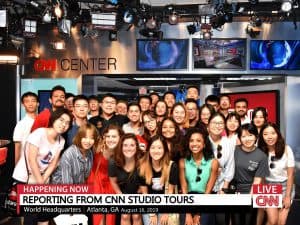 When I was looking for an MSBA program, I wanted a program that had students from diverse educational and professional backgrounds. Diversity meant that we tackled problems from various perspectives, but it also meant that we would have various skills and no common baseline before we started an intensive program. Emory’s MSBA program had found a great way to solve this discrepancy—a summer boot camp aimed to review concepts in business, technology, and math. The summer started with the business boot camp that Professor Ram Chellappa, Associate Dean and MSBA Academic Director, termed an “MBA in two weeks.” In those two weeks, we covered topics in economics, finance, operations, strategy, and marketing. Before we immersed deeper into the tech and data part of the program, this boot camp helped us frame the problems we will be solving in a business context and identify the need for analytical problem-solving in a corporate setting. The business understanding developed during the bootcamp has already been helpful as we apply the CRISP-DM process in our projects for the Business Analytics class. After brushing up on business concepts, we started the math boot camp, where we reviewed calculus, probabilities and distributions, sampling, matrices, and Bayesian approach. As someone who had not taken a math class in years, I found Professor Michael Miller’s explanations of random variables and their distributions very helpful. I also enjoyed learning about the Bayesian approach to statistics and applying the theorem to various problems. The understanding of eigen values and vectors that I developed during the bootcamp has also aided my learning in classes like Machine Learning. As someone with a business background, I was looking forward to honing my technical and coding skills in the technology boot camp. The boot camp started with a tech overview that focused on the history of programming and understanding the data generation process in organizations. Through this, I learned how data is stored and retrieved via cookies and how analytics has enabled organizations to make real-time correlations between customer’s needs and shopping patterns to target them with very relevant ads. During the boot camp, we learned to code in bash terminal and familiarized ourselves with the AWS platform. Both bash and AWS were new to a lot of us, hence, we aided each other’s understanding by working through code labs and playing games such as Bandit and Terminus. The boot camp taught me that a coder’s best friend is Google. Most coding issues we struggle with have already been solved by someone and have been explained in websites like Stack Overflow. In addition to developing our skills in business, technology, and math, we had a problem-solving boot camp where we were taught how to structurally break down complex business problems and work collaboratively towards solving them. “Do not smash and grab the watermelon”, Professor Noonan would say to emphasize that a holistic understanding of a business problem is crucial before the members break out individually to solve the problem. Problem-solving sessions such as these will continue throughout the year as we work through our class projects and eventually work on a capstone project. The boot camp had something for everyone. It provided us with a chance to identify our areas for improvement and hone our strengths. Besides learning, we also had plenty of time to explore Atlanta, participate in Toastmasters, get to know our classmates better and relax before the Fall classes started. |
| FROM Goizueta Emory Admissions Blog: “When life gives you lemons, turn them into an awesome margarita and leave the whole world wondering how you did it” |
|
“Dear Students, we have decided to cancel the physical visit to the West Coast. It was very hard to make this decision after all the work that went into it and the potential benefits to you and our program.” My heart sank into my stomach as I read Dr. Chellappa’s email. As I sat back in my ride and gazed into the San Francisco cityscape, my mind slowly began to process the ramifications of the message. Little did I know my whole senior second semester was going to be turned on its head. The West Coast trek has been the most anticipated event of my year of Master of Science in Business Analytics (MSBA) studies at Emory Goizueta Business School. Having grown up on the West Coast and being a huge consumer tech fan, visiting the companies at the heart of innovation in the US was something I have long waited for. To maximize the trip, I even arrived in SF a few days early to visit family and friends, and to have coffee chats with Emory alumni. Sadly, almost as if fate were playing a terrible prank, the trek was canceled while I was on my flight to SF. West Coast trek goes virtual Being naturally resourceful and optimistic, I decided to not let despair get the best of me and instead see how I could maximize the options I had. Luckily, MSBA Director of Career Services Renee Bourbeau, who always does a wonderful job, was already working on turning our in-person trek virtual. While not ideal, it was undoubtedly much better than nothing at all. As the COVID-19 conditions were getting worse on the west coast, I decided to return home early. In my remaining one and a half days in SF, I was able to meet up my relatives in the US for the first time ever, visit a high school friend who is building a startup, as well as reconnect with Rohan Bansal BBA19 and Tom Gordon BBA19, who are great friends and even greater mentors. Ride sharing lessons 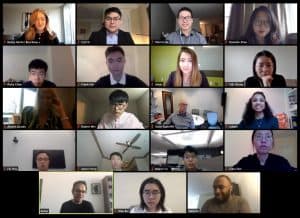 Over the next few days, Renee, with her professional networking wizardry, was able to convert our entire trek into virtual meetings. Monday came in a blink of an eye, and it was time for our first virtual meeting with Uber. Our meeting was hosted by alumnus Shubha Rao MBA13, who is currently the strategy lead at Uber’s Customer Experience & Support division. The MSBA students were all able to make meaningful connections with the diverse panel of speakers. We had a wonderful time learning about how Uber leverages the power of data to build predictive models to both better serve its customers and maximize business success. From John Wolter’s Analytics & Insights team that develops courier pricing strategy for Uber Eats to Shanshan Gong’s US & Canada Community Operations team that focuses on Uber’s Customer Support network, the MSBAs on the call all appreciated the opportunity to peer into Uber’s internal operations. It was fascinating to see how such an innovative company was able to get the whole world moving. While some students were still hesitant about the viability of virtual meetings on day one, all doubts were gone after our stellar experience with Uber. Needless to say, all the students were very enthusiastic about our second meeting with Lyft. Rahul Kadian MBA14, who hosted us, certainly lived up to our expectations. The MSBAs had a terrific time learning about Rahul’s background, from his consulting days to his current work using data to minimize fraud at Lyft. In Rahul’s view, all data analytics are geared towards problem-solving and fall under two categories. On the one hand, you are building algorithmic models, automating, or some other highly technical analytic work. On the other hand, you are modeling decisions, helping make very human decisions that cannot be fully encapsulated by just ones and zeros. In Rahul’s words, the true value of our MSBA education is our ability to find that balance between the two extremes. This balance can be drastically different depending on the company, department, and purpose. Regardless of where the final balance lies, performance is ultimately defined by the size of the business impact that the analytical process creates. All the MSBAs present really appreciated Rahul’s thoughtful insights and departed the meeting with newfound wisdom. A towering force 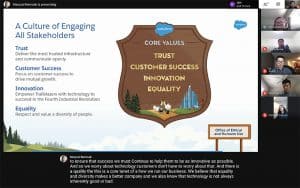 Salesforce’s meeting was next, and the streak of terrific sessions continue to hold. Our host, Marysol Nemsak, prepared a fantastic presentation that outlined how Salesforce leverages its suite of tools to service countless crucial companies around the world. It was also a pleasure hearing from Marysol’s Salesforce ‘Ohana’ (Hawaiian for family), who come from different backgrounds but share a wonderful Salesforce family. Jon Fee, the head of Global Marketing at Salesforce, touched upon how Salesforce continuously innovates both organically and inorganically, to maintain its leading positions in the enterprise software solutions space. Others, like Genesis Fleary, highlighted how the Salesforce leadership goes out of their way to connect and listen to all parts of the Salesforce Ohana. Overall, the MSBAs were all impressed by the way Salesforce leverages the power of analytics and data to better service its customers across its entire suite of products and services, and how Salesforce maintains an agile and a flat leadership structure despite its impressive size. A sweep through Creative Suites 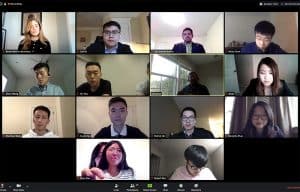 The last meeting on Tuesday was at Adobe, and our host, Satish Mohan MBA10, a director of growth strategy & analytics, was a treat to listen to. As Satish puts it, Adobe is a very data-heavy company that services a very creative client base. As the one-stop solution for all creative needs, Adobe has to continually leverage the power of data to make decisions. With our society becoming increasingly digital, creativity and the means to express it are on the rise. Adobe is very well poised for future success as long as it follows its current data-driven business problem-solving approach. While many other human processes like accounting and stock trading are slowly being replaced by machines, creative work is probably the last thing that computers will ever be able to learn. Lastly, Satish highlighted the importance of building a ‘T’ shaped skillset, where an individual gains a broad a set of experiences across many domains, but has one specific domain where they have deeply expertise. Overall, the MSBAs present each walked away with their own take on Satish’s wisdom, which will undoubtedly serve them well down their career. Googling Google 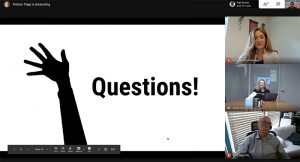 With the dawn of Wednesday, a particular mix of excitement and nervousness hung in the air. After all, we were going to speak with people from Google, one of the largest tech companies in the world. Everyone has heard of how unique yet challenging Google’s recruiting process is, so many MSBA students were noticeably tense. However, the tension in the air rapidly dissipated as Kristen Tripp eased us into the conference with an engaging and fun round of introductions. As Kristen broke down the recruiting process and provided personal tips along the way, the MSBAs’ analytical side started to take over. We began to see the Google recruiting process as a methodical, challenging, yet rewarding process designed to attract and select the best and brightest from all walks of life. Kristen then invited a panel of data scientists, product strategy and operations managers, and analysts to speak with us, each of whom shared their own journey to their current roles at Google. A common piece of advice from the panelists was to not get discouraged by setbacks. When Lisa Fischer, one of the panelists, first joined Google, she was not sure what she wanted to do or even what team she would be on. The company appealed to her because it provided the opportunities and room for her to grow and integrate into a role that she really liked, whatever it might be. The MSBAs walked away with new insights into Google’s culture and its vast array of opportunities, as well as an appreciation for its rigorous recruiting process. Lessons from a leader in digital transactions 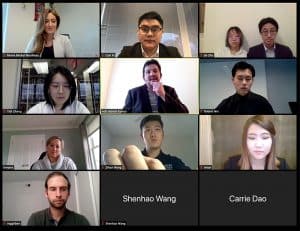 To top off an already excellent Wednesday, we had the privilege of speaking with a panel from PayPal, led by Carrie Dao MBA13. From how Michael Gilbert and his team minimize losses by reducing the risk on PayPal’s debit card products to how Christy Lin and her team continuously fight fraud using the power of data, the common theme was leveraging data to minimize loss. As fraud continues to shift from the physical to digital space and drastically increases due to payments becoming more and more fragmented, PayPal continues to invest in being the first line of defense for consumers and businesses in the digital transaction space. PayPal is also heavily invested in the privacy of its clients, especially in the current environment, where data breaches are daily news. The MSBA cohort is very thankful for the panelists’ unique insight into the future of digital payment and transaction security and gained appreciation for the analytical work behind this constant fight against fraud and risk. A SnapChat chat  And in a blink of an eye, we reached the final virtual session of the trek. As a longtime fan of consumer tech and the AR space, our meeting with Snap was without a doubt the most fascinating presentation to me. Our host, Alexis Garcia, took us on an engaging Snapchat trip over two-and-a-half hours filled with interactive filters and empowering stories. Alexis started off with a brief introduction and showed us a custom filter created just for Emory. The students and faculty alike had a great time taking silly selfies with the filter. Jean Luo and Pete Horgan then continued the journey with their introduction into the work of product managers at Snap. The constant interaction with various other teams and the ability to fully own a feature are highlights of the product manager internship position and really show the care and thoughtfulness Snap puts into fostering future talent. Christopher DiFeliciantonio then took over with a crash course on how Snap leverages the power of data science for all of its departments, whether it’s for improving revenue, helping to make product decisions or understanding consumer insights. These uses are all too familiar to the MSBA cohort, who have spent the past nine months working on numerous analytical projects across all disciplines and on a wide variety of business problems. We then had an opportunity to speak with Jeff Miller MBA10, a well-known Emory alum and a creative visionary at Snap. He took us through a magical journey, from how he gave life to the Taj Mahal with vibrant colors and humorous animations through one of SnapChat’s Landmarker filters during his trip to India, all the way to the touching story of how his team partnered with Glade to create new filters for use by women who wear traditional dress that obscures everything but their eyes. Finally, Jeff described Snap’s culture of willingness to make educated bets on the future, gaming, augmented reality, and content and not being afraid to innovate and trythemes I strongly resonate with on a personal level. The presentation then passed onto Laila Forghani and Ryan McDaniel, recruiters for Snap, who spoke about the full range of upcoming opportunities at Snaps and how we, as MSBAs, can leverage our diverse backgrounds and skillsets in both business and technical positions. Lastly, Alexis concluded our meeting with a fast-paced game of trivia. Luckily, the questions all revolved around Snap and the presentation, and were right up my alley thanks to my inherent interest in Snap and augmented reality. As if the day couldn’t get any better, I won first place and, beyond my wildest dreams, won a pair of Spectacles. This is a story of how the MSBA cohort and its program office were able to make the best of an unfortunate event and enjoy a magical week of virtual dates with some of the leading tech companies on the West Coast. Disney, Riot Games, and Live Nation were unfortunately rescheduled due to bad timing and the growing Coronavirus pandemic, but I am sure those meetings will be just as stellar. Staying optimistic and using all the resources available to make the best of any situation is an important skill, and something I strive to practice in any undesirable scenario. This is especially important now that the remainder of our semester has turned digital, and social distancing is encouraged. When lost, stay positive, keep your eyes on the future, and keep walking. You will either find a new path or be the trailblazer that many others follow. When life gives you lemons, turn them into an awesome margarita and leave the whole world wondering how you did it. Dr. Ram Chellappa, Renee Bourbeau and the MSBA Program Office wish to also thank Julie R. Barefoot, Associate Dean of Engagement & Partnerships and Aditya Rao, President of the Goizueta Alumni Board, for their collaboration and special partnership. The post “When life gives you lemons, turn them into an awesome margarita and leave the whole world wondering how you did it” appeared first on Life at Goizueta | Emory's Graduate Student. |
| FROM Goizueta Emory Admissions Blog: Everything happens for the best |
The coronavirus outbreak required changing the annual West Coast Trek to a virtual trip this year. While I still wish that we had had the chance to visit the tech giants in San Francisco Bay Area during the spring break, the virtual West Coast Trek still gave me and my colleagues an opportunity to witness the spirits of rigor, courage and innovation that prevail in the field of technology and encouraged us to think about how we could leverage the skillsets we have to create value for businesses.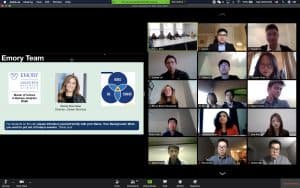 During the virtual session with Uber, I was fascinated by John Walter’s description of his experience building the Analytics & Insights team from scratch. Back then, it was much harder to spread the idea of data analytics because “big data” was merely a concept. However, he managed to stick to his heart and developed the team step-by-step to achieve what they have become today. As the head of courier pricing strategy at Uber Eats today, John Walter has only spent a few months in his new position but has continued to drive business insights based on data and his past experiences, which is very inspiring. Shanshan Gong, the A&I manager of US&C CommOps S&P, had professional experience in consulting and analytics before joining Uber. With a job focused on customer support, she is able to integrate her previous experience with data science to deliver insights and actionable results. Almost every one of the panelists who spoke with us noted how fast time flies, which is especially true in the analytics field. Regardless of whether it is the programming languages themselves or the packages and libraries associated, they are all being updated and improved constantly, creating new challenges and possibilities. As future business data scientists, my colleagues and I have all become well-aware of the process and are all committed to bringing our passion and professionalism to the field. The Google virtual session was also exceptionally helpful to me. Many panelists shared their thoughts on how to find the right job at the right company, one that has an encouraging culture and that empowers individuals. We were fortunate to get an insider’s look when Kristen Tripp, global recruiter at Google, talked about the qualities that Google seeks when screening candidates. She told us that first, Google looks for candidates with organized thinking and strong problem-solving capabilities. Secondly, it looks to hire individuals who are aligned with Google’s mission of organizing information for everyone, and have leadership and coordination abilities, which are essential to continuing the tech giant’s global impact. Third, a job candidate’s role-related knowledge demonstrates how well they know about the position they’re applying for and their self-awareness of suitability. Last but not least, “Googleyness,” which refers to teamwork in Google, is a measure of a candidate’s ability to cope with challenging teams and tasks. We MSBAs all appreciated the information and will use it as a guideline for personal development and career advancement. Thanks to ever-evolving technologies and humans’ enthusiasm for information sharing, we had the opportunity to learn about the careers, routines and aspirations of data science professionals in the age of social distancing. Though we did not have the chance to speak with the experts face-to-face or experience the innovative vibes in the most successful tech firms, through our computer screens, we were still able to feel the power of data and how it has transformed the way people think and work. Everything happens for a reason. Everything happens for the best. Bearing that in mind, the current MSBA cohort is more confident than ever to combine their business knowledge and technical skills to make a difference. The post Everything happens for the best appeared first on Life at Goizueta | Emory's Graduate Student. |
| FROM Goizueta Emory Admissions Blog: Goizueta’s 3rd Annual Business Analytics Conference demonstrates virtually anything is possible |
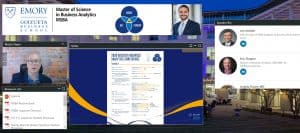 The Goizueta Business Analytics conference is one of the most awaited events of the year for MSBA students, staff and graduates. It marks the culmination of the rigorous 10-month program focused on producing industry-ready business data scientists. It is a great opportunity for the MSBA cohort to present the findings of their capstone projects and learn from industry experts about developments in the analytics and data science industry. This year’s conference was a special one since it was completely virtual due to the COVID-19 pandemic. Quite fittingly, this year’s theme was “How Business Analytics has helped organizations adapt to the COVID-19 pandemic.” 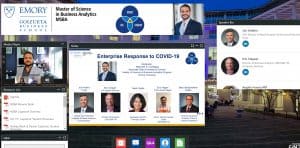 Our esteemed dean, Dr. Ram Chellappa, welcomed all our guests to the conference, introduced the MSBA program and described the relevance of the conference in these challenging times. Scott Radcliffe, managing director of our program introduced the speakers, agenda and logistics for the conference. This year’s conference featured 11 industry professionals who spoke on how enterprise companies and sectors are dealing with the current pandemic using business analytics. Our first speaker, Dr. Aleksander Lazarevic, vice president of advanced analytics and data engineering at Stanley Black & Decker spoke about “the role of advanced analytics in better organization planning around COVID-19.” It was fantastic to see how the trends and forecasts for COVID-19 were analyzed and interpreted from his point of view. His observation that, “all models are wrong, but some are useful” highlighted what we’ve learned multiple times in class – it is important to consider and understand statistics in the proper business context. He went on to highlight how new online trends that were a result of the pandemic were affecting different product categories at Stanley Black & Decker. Our student team then got the chance to present their capstone project work “Using digital customer feedback for analysis of brands, products and features” that they created for Stanley Black & Decker. Their text mining models were able to assimilate huge datasets of product reviews and provide relevant insights and user sentiments towards certain products and categories to drive business value. This team consisted of: Stella Guo, Mayur Kumar, Anuraaj Sonawala and Robert Wei. MSBA Director of Admissions Allison Jacobs, who spoke next, has been part of the MSBA program from its inception. She screens more than 800 applications every year to pick the brightest prospects from all over the world with backgrounds as diverse as liberal arts to engineering. She said the best part of her job is seeing how these students evolve into business data scientists through the 10-month MSBA journey. We then got the opportunity to hear from a panel of experts consisting of Jon Ambler, senior vice president and director of retail analytics and business at Truist, Neeti Gupta – business analytics thought leader, Eric Hagen 06BBA, senior director supply chain at The Home Depot, Bala Vaidyanathan, director of advanced analytics and industry research at FedEx, and Eric Clepper 02MBA, director of analytics at US Xpress Ventures on “Enterprise response to COVID-19.” It was interesting to hear how the current situation is driving digital transformation in a lot of the companies. They went on to discuss how analytics is helping identify the new opportunity areas and the ability to combine existing models and business strategy to adjust to changing times. Our second speaker, Yaron Haviv, founder and CTO of Iguazio gave a talk on “MLOps in the times of Coronavirus.” He began by describing how analytics has matured moving from BI to AI to proactive business value driven machine learning. He highlighted how current predictive models had to be tweaked given the massive change in trends and preferences among consumers in the pandemic situation. He also underlined the importance of building and optimizing machine learning models with a consideration of real-world data sets to make sure models do not fail in production environments. Christine Battle, associate director of student services for MSBA spoke about how she works with the MSBA cohort and the university to make sure the students have a smooth and enjoyable experience at school. She is the touch point for all student services-related activities and holds regular meetings with students to hear them out and address any queries. Our second student showcase, “Resource allocation through pothole predictions” for ATL 311 – City of Atlanta addressed how students combined client data with publicly available data like weather forecasts to predict by geography possible pothole filling requests. This would give the service team a proactive way to allocate their resources to provide better service to the residents of Atlanta. This team consisted of: Dipeeka Bastola, Susie Bai, Fei Hou and Alex Yang. 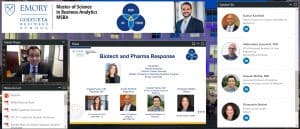 We then heard from healthcare industry professionals, including Angela Fusaro M.D. 17MBA, cofounder and CEO at Physician 360, Kumar Kantheti 02MBA, head of customer insights at Regeneron, Aneesh Mehta M.D., associate professor of medicine at Emory School of Medicine, Dinamarie Stefani, global quality leader at Abbott on “Biotech and pharma response to COVID-19.” It was inspiring to hear how each of these companies were using data and analytics to come up with probability-based estimates to help speed up testing and vaccination development for COVID-19. The panel was moderated by Director of Career Services at MSBA Renee Bourbeau. Renee also spoke about how she helps groom students for data science careers. She brings her tremendous industry experience and connections to help the MSBA students ace the interview process and land their dream jobs. The conference concluded with the final student showcase “Claim Loss Reserve Prediction” for our capstone partner Cogitate. This project was great example of applying analytics in the insurance space. The student team tackled a difficult challenge: they used machine learning models to incorporate accident attributes to make more accurate predictions on claim cost and in turn improve financial statement forecasting. This team consisted of: Daniel Byun, Ricky Chen, Jayson Faulds and May Shao. Overall, the virtual conference was a great opportunity for students and guests to learn about the transformational work through the MSBA capstone projects and understand from industry professionals about cutting edge analytics in the enterprise to quickly adjust to dynamically changing environment around us. I eagerly look forward to attending next year’s conference, hopefully at the business school. The post Goizueta’s 3rd Annual Business Analytics Conference demonstrates virtually anything is possible appeared first on Life at Goizueta | Emory's Graduate Student. |
| FROM Goizueta Emory Admissions Blog: GMAT or GRE: What’s an MBA Applicant to do? |
|
When you decide to pursue an MBA degree, you are also deciding to prepare for and take a standardized test (GMAT or GRE). This may be your first test in some time. Combine this with performance pressure and the high expectations from yourself and others and you have a recipe for anxiety. Years ago, business schools started accepting the GRE in addition to the longtime business school standard test, the GMAT. While this optionality can be positive, having a choice can also lead to additional questions and/or anxiety. So what is an MBA applicant to do? Goizueta Business School and the vast majority of business schools accept both the GMAT test and GRE test and have no preference for which test you submit. You may wonder if that is just what schools say while something else goes on behind closed doors. My experience at two, top-20 ranked business schools and conversations with many colleagues at other schools says that is not true. It really does not matter to MBA admissions directors which test you take. Business schools do not have a GMAT or GRE preference and consider your test performance along with other materials such as transcripts to assess if you will be successful in the classroom. Every school is looking for academically well-rounded students, but success in an MBA program also requires a level of quantitative skill not all undergraduate majors or disciplines require. Standardized tests provide a way for schools to collect information about your academic readiness especially in the quantitative area. Of course, a significantly low verbal score will also raise a flag to an MBA admissions committee. Again, well-rounded, academic readiness is what we are looking for. Since schools do not have a GMAT or GRE preference, it is in your best interest to take the test on which you will perform best. A quick Google search will yield tips on figuring out which test suits you. If you aren’t sure if an MBA degree or a different type of graduate program is right for you, the GRE might be a better bet. It is accepted at a wider variety of graduate programs. If you know an MBA program is in your future and you have a group of friends or co-workers also planning to apply, you might lean toward the GMAT and leverage group study and/or tutoring each other to stay accountable and improve your performance. Whether you choose the GMAT or GRE, take some time to get acquainted with the test. Plan to study on your own and consider some kind of test prep or tutoring. Practice tests are helpful to get a feel for the questions and style, but do not be surprised if your score varies from how you do on the practice exams. And don’t let a low score derail you. If you believe you can do better, prepare some more and take it again. Business schools love perseverance. If you sit for the GMAT or GRE a few times and don’t see improvement, you may need to accept your score and focus on the other application materials. My advice to someone with a low score is to be so strong in the other aspects of the application that I forget the low score. Remember, it is a holistic process. I’ve denied perfect scores and admitted sub-600 scores. No matter your GMAT or GRE score, the rest of your MBA application is just as important. The post GMAT or GRE: What’s an MBA Applicant to do? appeared first on Life at Goizueta | Emory's Graduate Student. |
| FROM Goizueta Emory Admissions Blog: GMAT or GRE: What’s an MBA applicant to do? |
|
When you decide to pursue an MBA degree, you are also deciding to prepare for and take a standardized test (GMAT or GRE). This may be your first test in some time. Combine this with performance pressure and the high expectations from yourself and others and you have a recipe for anxiety. Years ago, business schools started accepting the GRE in addition to the longtime business school standard test, the GMAT. While this optionality can be positive, having a choice can also lead to additional questions and/or anxiety. So what is an MBA applicant to do? Goizueta Business School and the vast majority of business schools accept both the GMAT test and GRE test and have no preference for which test you submit. You may wonder if that is just what schools say while something else goes on behind closed doors. My experience at two, top-20 ranked business schools and conversations with many colleagues at other schools says that is not true. It really does not matter to MBA admissions directors which test you take. Business schools do not have a GMAT or GRE preference and consider your test performance along with other materials such as transcripts to assess if you will be successful in the classroom. Every school is looking for academically well-rounded students, but success in an MBA program also requires a level of quantitative skill not all undergraduate majors or disciplines require. Standardized tests provide a way for schools to collect information about your academic readiness especially in the quantitative area. Of course, a significantly low verbal score will also raise a flag to an MBA admissions committee. Again, well-rounded, academic readiness is what we are looking for. Since schools do not have a GMAT or GRE preference, it is in your best interest to take the test on which you will perform best. A quick Google search will yield tips on figuring out which test suits you. If you aren’t sure if an MBA degree or a different type of graduate program is right for you, the GRE might be a better bet. It is accepted at a wider variety of graduate programs. If you know an MBA program is in your future and you have a group of friends or co-workers also planning to apply, you might lean toward the GMAT and leverage group study and/or tutoring each other to stay accountable and improve your performance. Whether you choose the GMAT or GRE, take some time to get acquainted with the test. Plan to study on your own and consider some kind of test prep or tutoring. Practice tests are helpful to get a feel for the questions and style, but do not be surprised if your score varies from how you do on the practice exams. And don’t let a low score derail you. If you believe you can do better, prepare some more and take it again. Business schools love perseverance. If you sit for the GMAT or GRE a few times and don’t see improvement, you may need to accept your score and focus on the other application materials. My advice to someone with a low score is to be so strong in the other aspects of the application that I forget the low score. Remember, it is a holistic process. I’ve denied perfect scores and admitted sub-600 scores. No matter your GMAT or GRE score, the rest of your MBA application is just as important. The post GMAT or GRE: What’s an MBA applicant to do? appeared first on Life at Goizueta | Emory's Graduate Student. |
| FROM Goizueta Emory Admissions Blog: 5 ways to sink your chances of getting into a top-tier MBA Program |
|
Make mention of MBA studies at work, your next family gathering, or next time you are hanging out with friends and you are likely to get plenty of advice. A quick Google search will provide plenty of additional tips and suggestions for crafting a great application and setting yourself apart on an MBA application. So, with so many resources cracking the MBA admissions code, how do great candidates get denied from top-tier business schools? Through my experience and conversation with colleagues, I have identified five key things that will torpedo your chances. Here they are:
The post 5 ways to sink your chances of getting into a top-tier MBA Program appeared first on Life at Goizueta | Emory's Graduate Student. |
| FROM Goizueta Emory Admissions Blog: It is not what happens to you —it is how you respond to it |
|
This year will most likely be remembered as one of the most memorable years for the entire MSBA program staff and the class of 2020 and 2021 cohorts. The COVID-19 pandemic and its ongoing consequences on the economy and public health guidelines has profoundly changed the way the MSBA program delivers its curriculum to its students. What has been the most heartbreaking aspect, to all of us, is that almost half of the accepted students from overseas either couldn’t join the program on time or, unfortunately, have inevitably decided to defer their enrollments to next year, all of which majorly attributed to the suspension of Routine VISA Services. 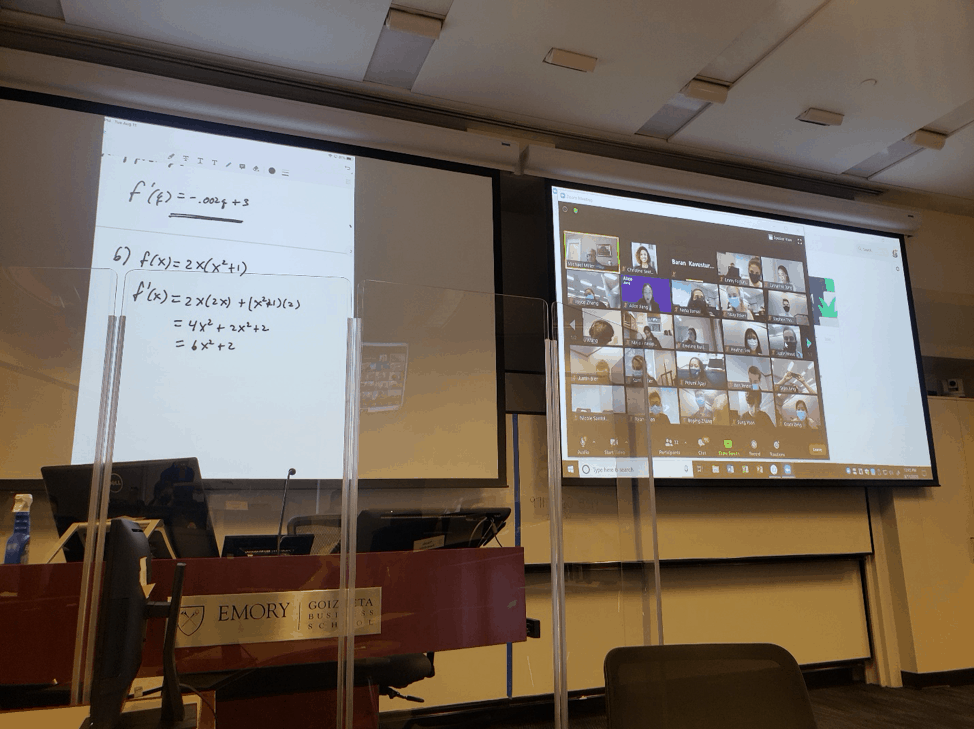 The picture was taken at one of the Bootcamp sessions in pre-fall term. Even in this challenging and chaotic time, to best accommodate the experiential learning experience for those who have taken a leap of faith to pursue what the MSBA program will offer this year; the program’s office decided to adopt some flexibility into this curriculum by delaying the program start-date to mid-August, instead of mid-July. Additionally, for those who may not feel safe being in the campus setting, the program has been delivering a hybrid version of both in-person and online learning via Zoom. Though I consider myself a realist who sees the world as it is, I feel quite optimistic about what is to come as a result of the change we all are going through in this current time. My ultimate motivation to apply for the MSBA program at Emory University’s Goizueta Business School came primarily from my desire to achieve the state of personal autonomy. And that is the case for most my fellow cohorts. The encyclopedia defines autonomy as, “A person’s sense of self-determination, of being able to make choices regarding the direction of her or his own actions, including the freedom to pursue those choices.” Rather than seeing ourselves as victims who have been lost to the external circumstances of which we have no control, I believe we can create what is the best for us by proactively going after the outcome we want from the seed of positive mental attitude and visualization. Even Zig Ziglar says, “It is not what happens to you that matters. It’s how you respond to what happens to you that makes a difference.” It is not that pretending to be positive all the time is the solution to a happy life, but it suggests that when we change the way we look at things, the things we look at change. I strongly believe that developing my intellectual and leadership capability is key to achieving a state of autonomy and self-actualization. There is no doubt that this firm belief has led me to a sense of commitment in learning the skills that are not only in high demand in the world we are currently live, but also extremely valuable when I embark on my endeavor as an entrepreneur. I am an extremely blessed individual because I have been given an opportunity to embark on my American dream as both a first-generation Korean-American and a first-generation college student in my family. I attribute this blessing to my father, who has sacrificed more than I can ask for, to ensure that I am able to develop my intellectual capability to be more valuable to the world at large. It was his autonomy that enabled all things to be possible. In the same regard, we, Emory University Goizueta Business School MSBA class of 2021, also desire the personal autonomy for the reason that we can give back to our loved ones, our community, and our world. The post It is not what happens to you —it is how you respond to it appeared first on Life at Goizueta | Emory's Graduate Student. |
| FROM Goizueta Emory Admissions Blog: How to crush your MBA interview |
|
Given the amount of information you provide in application materials, there must be something special about face-to-face interaction to make business schools include an interview as part of the MBA admissions process, right? Admissions is a holistic process, so how much does the interview really matter, and how can you make sure you do your best during the face-to-face time? From a logistics point of view, coordinating any volume of interviews and orchestrating schedules under a short, specific time frame is a challenge most MBA admissions offices would give up if they didn’t add value to the evaluation process. So, the short answer is yes, your MBA interview matters. How much it is weighted is a question each admissions team could answer differently. Be sure to ask if you are curious. No matter the weight, it is important to do well. I have seen MBA applicants who are very strong on paper sink themselves in the interview. Treat this like you would any other important interview. Even if the school positions it as a casual conversation or just a way to “get to know you,” do not walk in cold. Being prepared in this context is similar to an important job interview. Some additional ideas and points:
Think about why your experience matters and be able to answer an unasked “so what?” Business schools see many candidates with similar backgrounds at similar points in their careers. If you talk about a project you worked on or a cool idea you implemented but you don’t tie it back to your reason for an MBA or future goals, you are missing an opportunity. Every candidate competing for a spot has professional experience and had successes. That isn’t nearly as differentiating as what you learned, how you developed, and how it has informed your future goals and aspirations. Interviews often are used to gauge “fit.” Before the interview, reflect on the culture of the school and think about how you would fit into that culture and ways you would be an asset to the community. At Goizueta, our classes are small by design and we look to infuse as much diversity as we can into every class. Every member of the community is expected to add value and have an impact. With a small class, everyone is noticed. If you are interviewing with us, we would love to hear about how you will be a contributor and are ready to collaborate with your diverse cohort. It seems too obvious to even mention, but no MBA admissions committee appreciates someone who makes bad choices. Here is my quick “don’t do” list (and yes, these are all real examples):
The post How to crush your MBA interview appeared first on Life at Goizueta | Emory's Graduate Student. |
| FROM Goizueta Emory Admissions Blog: Top 5 things I learned during remote learning |
|
| FROM Goizueta Emory Admissions Blog: 5 ways millennials have improved MBA programs |
|
Of the many changes in MBA programs over the past decade, one of the most significant has been the generational shift of the student body. The Millennial generation began entering full-time MBA programs in large numbers in the late 2000s and has since grown into the predominant student population. Most of what is written about Millennials is not exactly high praise. However, like all large populations, we understand them better when we segment them. There is a segment of high-achieving Millennials who deserve substantial credit for the re-inventing of the MBA experience. Here are five ways Millennial students have made MBA programs stronger:
The post 5 ways millennials have improved MBA programs appeared first on Life at Goizueta | Emory's Graduate Student. |
| FROM Goizueta Emory Admissions Blog: Graduate school looks different in 2020 |
Starting graduate school under normal circumstances can be intimidating; starting graduate school during a global pandemic is another story. Many questions were running through my head during the months leading up to the start of the MSBA program. Would I be able to meet my classmates and professors in person? How will Emory University be able to adapt to the constantly changing state of the pandemic? Will I get the same quality of education that I would get during more stable times? After spending a few weeks in the MSBA program, I feel confident that there is no better time than 2020 to take time to develop personally and professionally. We are learning to be adaptable, to roll with the punches, and to make the best of a sticky situation. My classmates are resilient and passionate, and I cannot wait to continue to grow with them throughout our 10 months together. 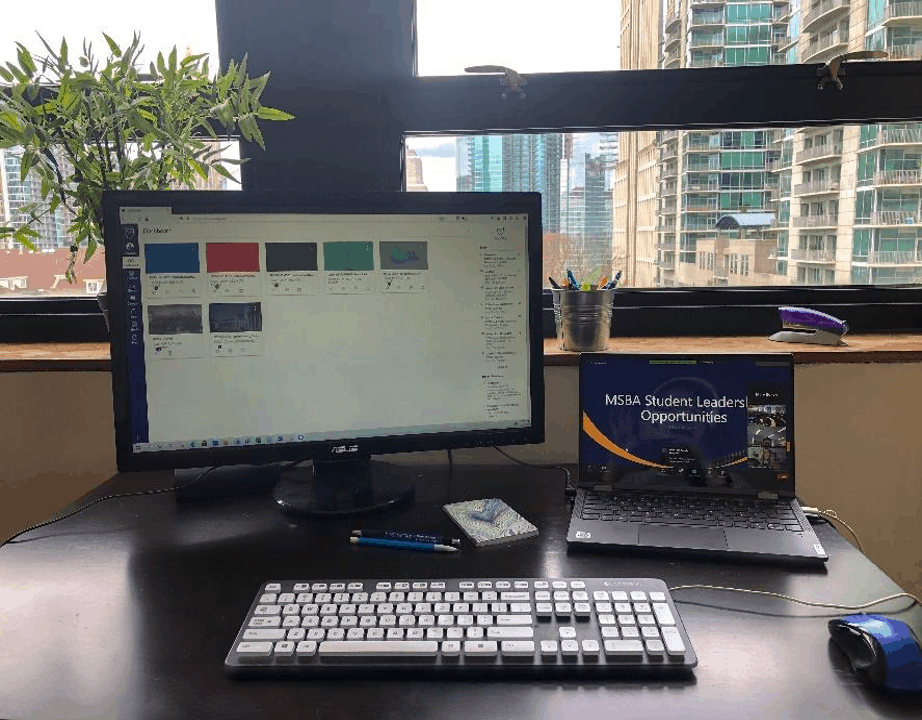 My home setup for a Zoom informational session about leadership opportunities in the MSBA Program. Before COVID-19 changed all our lives, the 2021 MSBA cohort was set to begin boot camps in early July. After Emory announced their decision to suspend in-person instruction for the summer due to COVID-19 concerns, many students voiced a strong preference for in-person instruction. Emory’s small class sizes and personalized instruction were major factors in my decision to join the MSBA program. The program office took our concerns to heart and found a way to make the boot camps work for us, which meant postponing instruction until the pre-fall term in August. Consequently, we needed to fit seven weeks of instruction into a three-week period with the same number of contact hours. I knew that these few weeks would be intense and fast-paced, so I took the extra month of summer to prepare by learning new skills through Data Camp, working on personal data science projects, and getting some extra rest. Before beginning any of our coursework, the program office thought outside the box to find ways to socialize the incoming MSBA students. Through happy hours and tech boot camp study sessions on Zoom, I got to know each one of my classmates before meeting them in person. During this time, I also had the opportunity to virtually chat with MSBA alumni about their careers and experiences at Goizueta Business School. These experiences would not have come to fruition if the pandemic hadn’t pushed us to find new ways to socially connect while isolated. After spending months in various phases of quarantine, I was unsure what it would look like to interact with professors and other students in a safe way. Luckily, during our first day of onboarding, my concerns were quickly alleviated. The MSBA program and the entire Goizueta Business School was well-prepared for our arrival and made for a smooth transition to in-person instruction for the semester. Although it feels a bit strange to sit six feet away from your classmates or refrain from shaking hands with a new acquaintance, our cohort has been quick to adapt to our new normal. By going through intense graduate coursework together in these unprecedented times, our cohort instantly bonded and built camaraderie. Our boot camp sessions have been a hybrid model of in-person and online sessions, which has led to a sense of comfort and familiarity among the students and professors. Some students are taking courses fully online, and although we haven’t met in person, I already feel that I know them on a personal level. Everyone in the MSBA program knows that living through a pandemic inflicts different stressors on each of us, and I know that I have a strong support system in my classmates, professors, and program office. While there is still much uncertainty as to what the future holds, I know that I made the right decision to join the MSBA program. Through the few short weeks that I have been a part of the program, I have already developed drastically as a business data scientist and as a person. As I wrap up my boot camp coursework, I am eager to dive into the core courses in the fall semester and continue to learn and grow. The post Graduate school looks different in 2020 appeared first on Life at Goizueta | Emory's Graduate Student. |

|
|
|
GMAT Club REWARDS
|